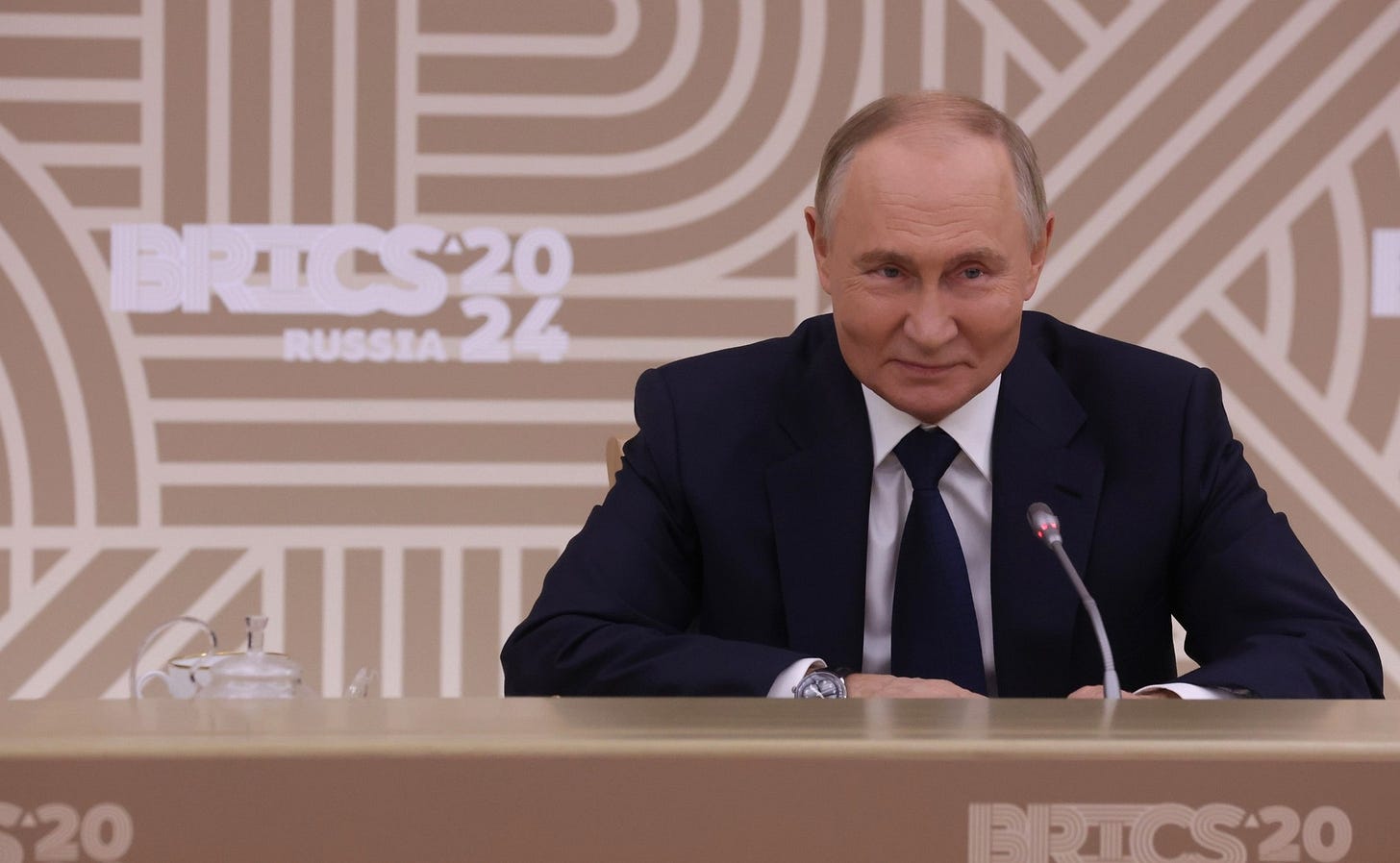BRICS Summit as Evidence of Consolidating New Centre of Global Power
The three-day 16th BRICS summit, which brought together not only heads of state but also other prominent politicians, opened on 22 October in Kazan under the Russian presidency.
Egypt, the United Arab Emirates, Iran and Ethiopia reportedly joined the bloc's core members Brazil, Russia, India, China and South Africa, setting the trend for the expansion of the economic and geopolitical union. Moreover, the rightful members of BRICS will determine the status of Saudi Arabia during the current summit.
A total of about thirty countries, including Algeria, Azerbaijan, Malaysia and Thailand, also expressed their desire to join BRICS. Twenty-three nations including Algeria, Argentina, Bahrain, Belarus, Bolivia, Venezuela, Vietnam, Honduras, Egypt, Indonesia, Iran, Kazakhstan, Cuba, Kuwait, Morocco, Nigeria and Palestine formally submitted applications. The ongoing summit is expected to be the most massive event in the history of BRICS.
The agenda would cover discussions on enhancing multipolarity, the admission of new members to the bloc, as well as the resolution of regional conflicts, Russian presidential aide Yury Ushakov announced. On the first evening, participants will attend an informal dinner at the Kazan City Hall, with the summit's work beginning the next day, in the morning of 23 October. The allies are expected to discuss the regional conflict resolution, financial co-operation and further expansion of the bloc.
Moreover, Russian President Vladimir Putin will hold bilateral meetings with Iranian President Masoud Pezeshkian and Turkish President Recep Tayyip Erdoğan, as well as with Ethiopian Prime Minister Abiy Ahmed Ali.
A session on "BRICS and the Global South, Building a Better World Together" is scheduled to be held on the final day of the summit. During the meeting, participants are expected to focus on resolving the acute crisis in the Middle East. Afterwards, Putin will hold a series of bilateral meetings with the presidents of Palestine, Laos, Mauritania, Bolivia, Serbia, as well as with the Prime Minister of Vietnam and UN Secretary-General António Guterres.
The summit will be attended by representatives of 36 states and six international organisations, which will adopt the Kazan Declaration at the end of the event. It was planned to admit new BRICS members in the future via a new partnership mechanism, Ushakov noted.
In almost two decades, BRICS activities have covered 45 per cent of the world's population and 33 per cent of the land, with GDP growth outpacing the Group of Seven (G7) nations with huge potential for economic development. Their combined GDP totalled over $60 trillion and their share of global GDP stood at 37.4 per cent, compared to the G7's 29.3 per cent. The BRICS also account for almost a quarter of global exports.
An alternative to the dollar, which is losing its leading position in international trade, will be a separate issue on the agenda. The BRICS members intend to carry out settlements using national currencies and create an alternative platform for international payments, protected from Western sanctions.
The rapidly developing alliance is expected to become a counterweight to the G7 not only economically but also politically. The joining of major fossil fuel producers will also challenge the dollar's longstanding dominance in the international market by switching to other currencies. US officials, however, say they see no threat in BRICS expansion.
“We don't view the BRICS arrangement as some sort of, you know, threat. These countries can decide for themselves who they want to associate with and especially how they want to be economically linked with one another,” John Kirby, National Security Council Coordinator for Strategic Communications, said.
However, the bloc's expansion reflects the general trend of globalisation and mutually beneficial co-operation. The Kazan Summit can demonstrate to potential partners and the rest of the world the efficiency of international co-operation without engaging the once pedestal European leaders and the United States. BRICS poses a threat to the established American hegemony, as it unites the countries of the rapidly developing Global South with the necessary finances and energy resources.
BRICS was founded in 2006 by Brazil, Russia, India and China, and welcomed South Africa into its ranks in 2011. On 1 January 2024, the presidency was taken over by Russia. Currently, the BRICS includes 10 states as rightful members.




